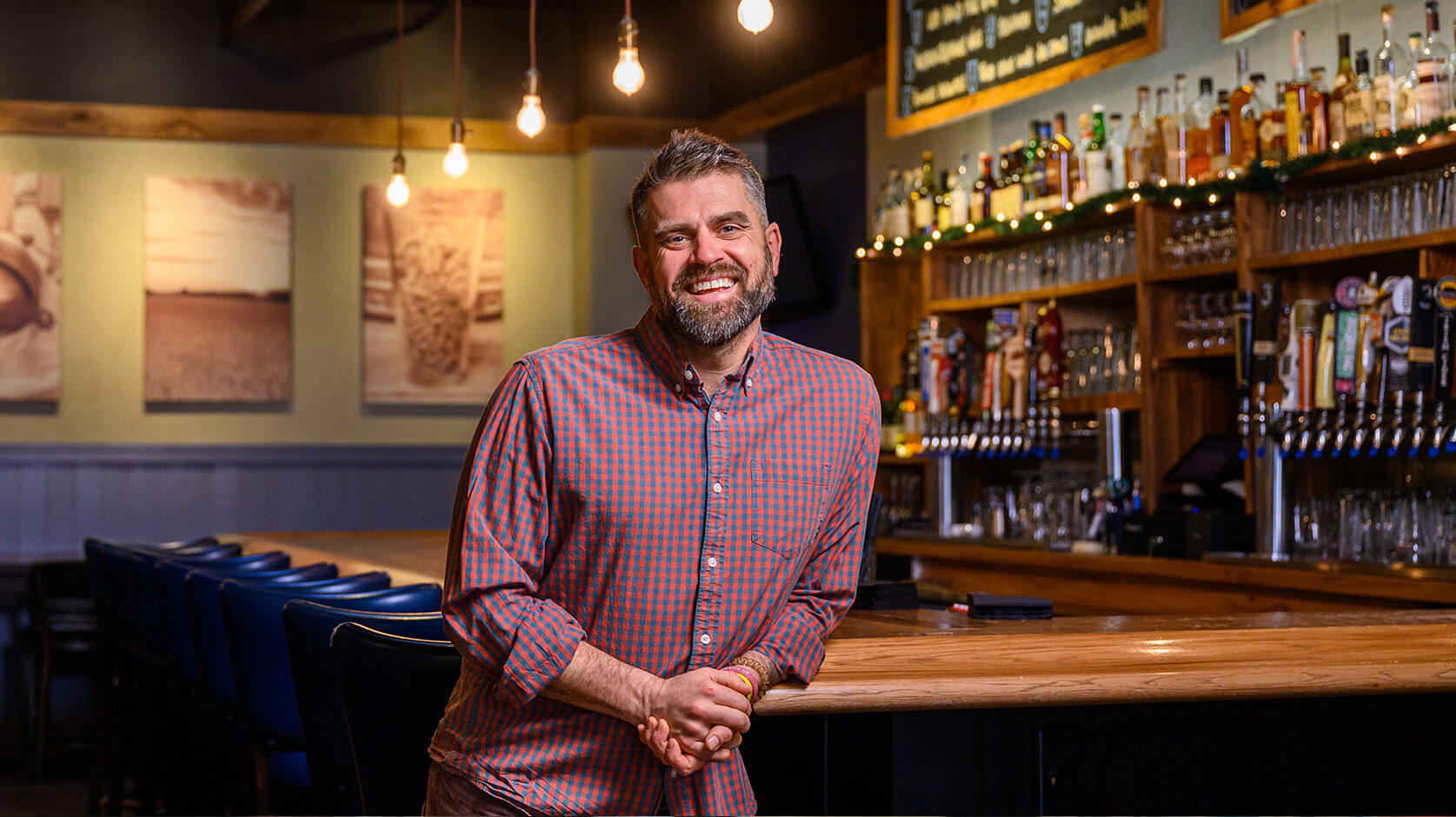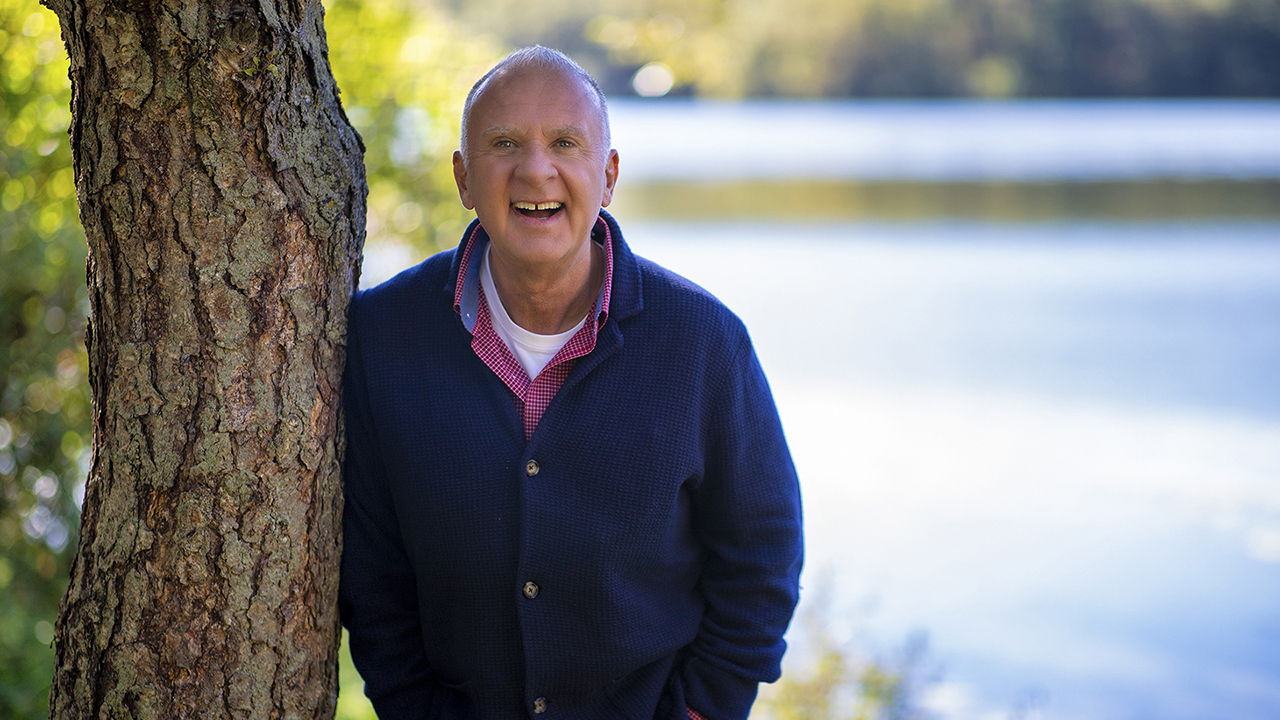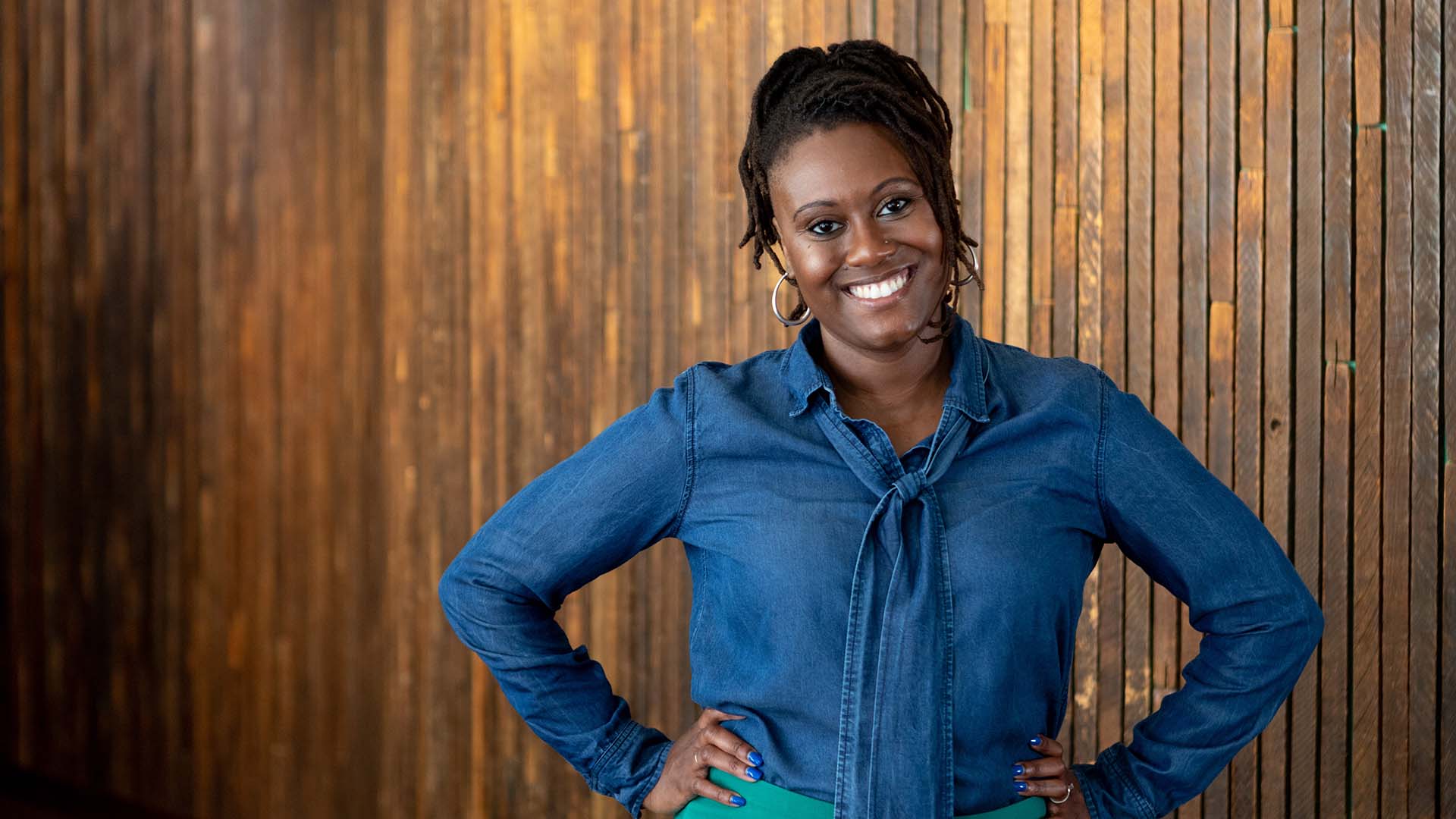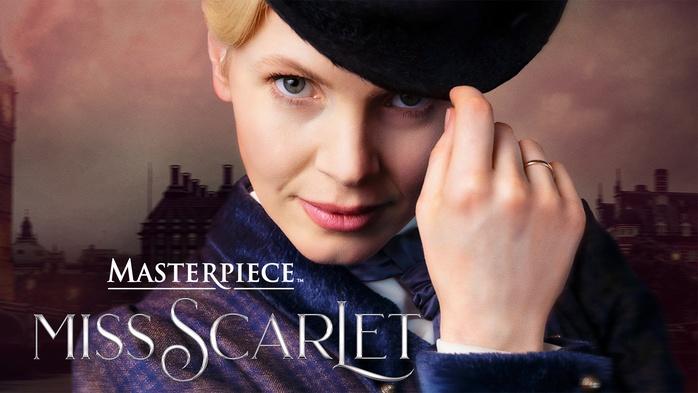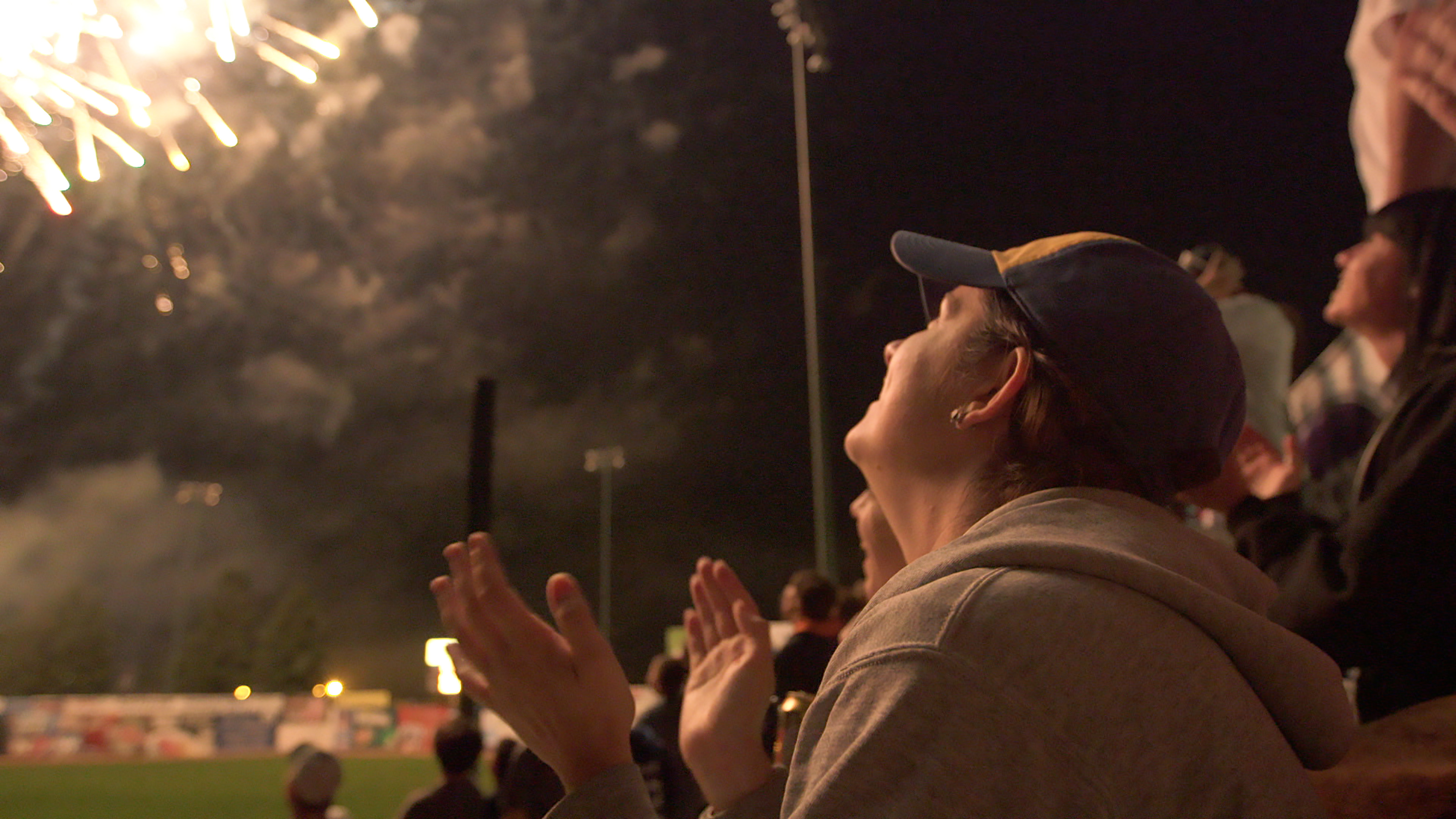Q&A: Meet Tegan Griffith of “American Creed”
January 16, 2018 Leave a Comment
In American Creed, premiering 8 p.m. Tuesday, Feb. 27, former Secretary of State Condoleezza Rice, historian David Kennedy and a diverse group of Americans come together to explore whether a unifying set of beliefs – an American creed – can prove more powerful than the issues that divide us.
 One of the people who share their stories is Marine veteran and college student Tegan Griffith. A Wisconsin native, Griffith grew up in tiny Wittenberg, in Shawano County, and now attends UW-Stevens Point.
One of the people who share their stories is Marine veteran and college student Tegan Griffith. A Wisconsin native, Griffith grew up in tiny Wittenberg, in Shawano County, and now attends UW-Stevens Point.
WPT spoke with Griffith to learn more about her background and her take on what unites us.
“Growing up in Wittenberg made me appreciate the hard work that rural kids and families have to put in to become successful later in life,” she says. “Most of the people I grew up with worked on family farms or started working early in life. It was tough to leave home, but when the opportunities presented themselves, we joined the military or went off to college. Some became parents and entered the full-time workforce right after graduation.”
 Multiple generations of Griffith’s family, including her father and brother, have served in the military. She joined the Marines at 21 and served for four years, including spending much of 2008 in Iraq supporting a Marine Light Attack Helicopter Squadron. She left active duty as a Sergeant in 2009 and returned to Wisconsin.
Multiple generations of Griffith’s family, including her father and brother, have served in the military. She joined the Marines at 21 and served for four years, including spending much of 2008 in Iraq supporting a Marine Light Attack Helicopter Squadron. She left active duty as a Sergeant in 2009 and returned to Wisconsin.
Currently, Griffith is a senior at UW-Stevens Point, majoring in communication with an emphasis on public relations. She serves as the Communication and PR Director with UWSP’s Student Government Association. She plans to graduate this coming May.
“Graduating from college is a long time coming,” says Griffith, who is 33. “I’m hoping to stay in the Midwest and find a job where I can act as a sort of community liaison. I have volunteered quite a bit in the veteran community, and it has helped me learn how to bridge a gap between the civilian population and veteran population. I value being able to bring groups of people together through storytelling and conversation.”
How did the filmmakers select you?
In 2012, I became heavily involved with the national nonprofit Iraq and Afghanistan Veterans of America (IAVA) and was chosen to participate in their annual campaign, Storm the Hill, in Washington, D.C. The filmmakers reached out to IAVA looking for the story of a rural, woman veteran. Kate Stilley Steiner and Sam Ball, from Citizen Film, spent hours talking on the phone with me.
Before Sam came to Wisconsin, we spent weeks running ideas and events back and forth with one another. He flew in and met up with a crew from Chicago to film me in July 2014. It seems like forever ago!
How did they set up what you included in this segment – what kinds of questions did they ask?
The film crew was absolutely wonderful and very understanding. Sam, the producer, did all the questioning; we had already established quite a relationship.
The crew wanted to capture the work I was doing in Wisconsin for IAVA, but also me in my natural environment with family and friends. I arranged most of the social gatherings; Sam worked with the venues. I was tabling at the Harley Davidson Museum in Milwaukee for IAVA, but we couldn’t be filmed there. The group ended up going to O’Lydia’s for food and drinks, and that’s actually seen in the film.
 In a way, the film was a blessing. Sam asked quite a few questions about my own service in the Marine Corps that I don’t believe are in the film. At one point, I ended up crying and had to take a break. After this experience, I had a hard time knowing my story was out there on film – forever.
In a way, the film was a blessing. Sam asked quite a few questions about my own service in the Marine Corps that I don’t believe are in the film. At one point, I ended up crying and had to take a break. After this experience, I had a hard time knowing my story was out there on film – forever.
It was a very revealing experience, and I would do it again, but I realized I wasn’t really dealing with a lot of things I had experienced in the military. In a roundabout way, Sam brought that to my attention.
I knew that if I was going to continue my work in the veteran community, I had to take care of myself. So I started going to the VA Hospital in Madison to work on my mental health, and it was a very good process.
In the film, you say that “I think the American ideal of citizenship is about service to others, either through military service or volunteerism or advocacy.” How have you come to that conclusion?
It started with my volunteer work with IAVA, when I took stories of rural veterans to Washington, D.C. They trusted me with their stories – as I trusted Sam, from Citizen Film.
I had an opportunity to make sure it wasn’t just about my story, but the stories of veterans nobody pays attention to in areas untouched by the state and federal Departments of Veterans Affairs.
 Since then, I’ve become a member of the Women Marines Association, the VFW, the American Legion and Team Rubicon.
Since then, I’ve become a member of the Women Marines Association, the VFW, the American Legion and Team Rubicon.
While most of those organizations are about legislative types of advocacy, I’ve especially loved volunteering with Team Rubicon. I had the chance to serve the nation when I was in the Marine Corps and felt the need to continue that service back in Wisconsin.
I joined Operation Sandman in April of 2013 when the city of Jefferson was flooding. I went by myself to fill sandbags for the city and ended up meeting some really great veterans who lived around Wisconsin who felt the need to serve, too. We’re still friends! In May 2017, I deployed with Team Rubicon again for Operation Kingfisher, in response to a tornado in Barron County.
So after my military service, I’ve served through legislative work and through disaster relief work. It can help a veteran find purpose again. Volunteering over the years has also helped me integrate back into the community.
You’ve been active in student government as well as advocacy with the U.S. government (Storm the Hill, etc.). Why is it important to you to speak out and be active in the civic process?
I feel like most folks believe it’s something too hard or uncomfortable to participate in. They don’t know how to get started.
While working with the government seems like a bit of a spaghetti bowl, I have been well received by my leadership in Washington, D.C. and back in Wisconsin. It was really great to meet with Rep. Mark Pocan’s staff, both in Washington and Wisconsin. It is important for elected officials to hear from their constituents; while there is a lot of anxiety about reaching out to them, I think it’s an important part of being a citizen in the United States.
Having worked with IAVA, as a non-partisan group, I learned how to stay in the middle of things and deliver a message that isn’t inflammatory to one side or another. That’s helped me personally to gain traction with elected officials and local groups in a tactful manner.
What has rural Wisconsin life taught you about the American dream?
As a teenager, growing up in Wittenberg seemed like the worst thing in the world. I didn’t appreciate it then. But now, I see how so many of us from my graduating class have gone out into the world. Some have returned to raise families; some of us have done very well for ourselves. Those of us from such a small town have a lot to be proud of.
Contrary to popular opinion, this borderline millennial (by a year!) loves rural life in Wisconsin. I want to stay here. I want to buy a home and have a career here. I love Wisconsin, and I love the people that live here.
What would you say to people who are still struggling to find their piece of the American dream?
Stick with it. Don’t lose sight of your dream. A struggle can be temporary; asking others for help can be really beneficial.
Never doubt that you can make a difference. It doesn’t have to be a major personal win every time. Little victories are just as important as the big ones.
 Passport
Passport